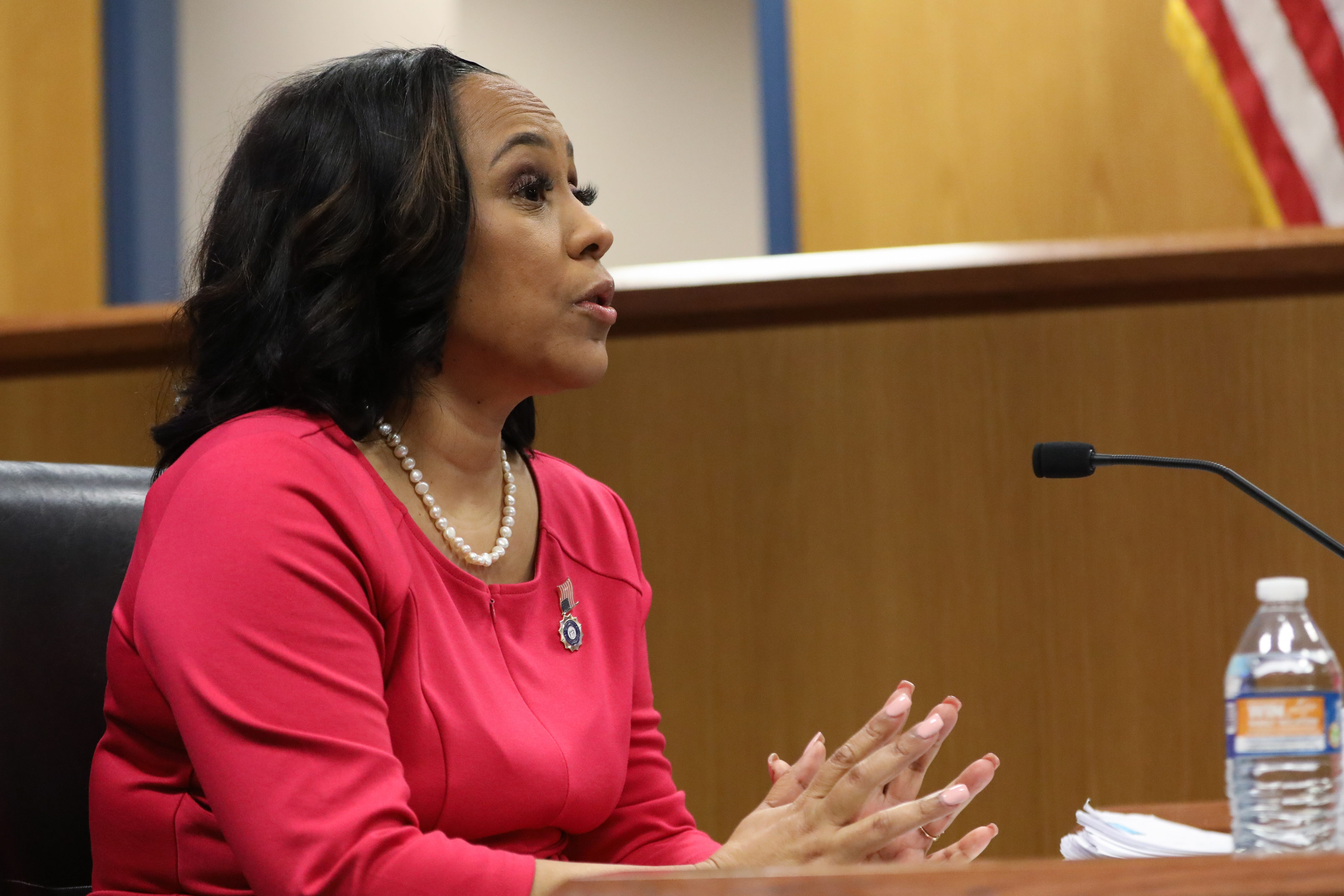The spotlight in the Fulton County District Attorney Fani Willis’s case against former President Donald Trump and others has unexpectedly landed on a figure who initially seemed poised to be a “bombshell witness” but instead became an emblem of legal complexities and strategic maneuvering: Terrence Bradley lawyer. This article delves into the role of Terrence Bradley, not just as any lawyer, but as a pivotal, albeit reticent, player in the unfolding drama surrounding allegations against Willis and prosecutor Nathan Wade, and their potential impact on the Georgia election interference case.

The legal proceedings took a dramatic turn when defense attorney Ashleigh Merchant, representing Michael Roman, a former Trump campaign operative, suggested that Willis and Wade’s relationship was not only romantic but also started earlier than they claimed. Merchant asserted that this “clandestine” affair constituted a conflict of interest, potentially invalidating the entire prosecution. Enter Terrence Bradley, a lawyer with unique insight, having been both a law partner to Nathan Wade and his divorce attorney. He was subpoenaed as the person who purportedly held the key to unlocking the truth about the timeline of the Willis-Wade relationship, information crucial to the defense’s attempt to disqualify Willis and potentially derail the Trump case.
Bradley’s Testimony: A Wall of Privilege
The anticipation surrounding Terrence Bradley’s testimony was palpable. Defense lawyers hoped he would confirm their claims that the romantic relationship between Willis and Wade began before Wade was hired as special prosecutor, directly contradicting sworn affidavits from Willis and Wade. This timeline was critical because it fueled allegations of financial impropriety – that Willis financially benefited from the Trump case by hiring Wade and engaging in an affair with him, using taxpayer money allocated to the prosecution.
However, Bradley’s appearance on the stand turned out to be less of a bombshell and more of a legal stalemate. From the outset, Terrence Bradley lawyer invoked attorney-client privilege, claiming he could not disclose conversations he had with Nathan Wade about Wade’s relationship with Fani Willis. This assertion became the central theme of his testimony. Even under what seemed like friendly questioning from defense lawyers, Bradley offered terse responses, frequently citing privilege as a barrier to divulging information.
“Did Mr. Wade ever tell you when the relationship with District Attorney Willis started?” Merchant asked.
“Attorney-client privilege,” Bradley curtly replied, a pattern repeated throughout his time on the stand.
Prosecutors, and Wade’s own attorney, staunchly supported Bradley’s invocation of privilege, further limiting the scope of questioning. This legal fencing frustrated the defense’s efforts to extract potentially damaging information. Despite being presented as a witness who “knows all the secrets,” Bradley’s testimony became an exercise in what he couldn’t say, rather than what he could.
Glimmers and Implications from Bradley’s Restrained Testimony
Despite the roadblocks of privilege, some details did emerge from Terrence Bradley lawyer’s testimony, offering subtle but potentially significant insights. It was revealed that Merchant had shared her motion to dismiss, containing allegations of the affair, with Bradley days before it was officially filed. Bradley confirmed texting Merchant “looks good” in response to this motion, which included “salacious details” about romantic vacations allegedly funded by Wade’s earnings from the Trump case.
Furthermore, Bradley grudgingly acknowledged that his response to Merchant, and potentially other communications, were informed by privileged information shared with him by Wade. This admission, though indirect, raised serious ethical questions. If Bradley indeed communicated privileged information to a third party – especially to a lawyer representing a defendant in the very case involving his former client – he might have violated professional conduct rules.
Adding another layer of complexity, prosecutor Anna Cross cross-examined Bradley, bringing up allegations of sexual assault that led to his departure from the law firm he shared with Wade. While Bradley denied the allegations, Cross argued that this information was relevant to Bradley’s credibility and potential bias against Wade and Willis. This line of questioning suggested a strategy to undermine Bradley’s reliability as a witness, portraying him as someone who might have an axe to grind.
Judge McAfee’s Quandary and the Unfolding Legal Drama
Judge Scott McAfee, presiding over the hearing, acknowledged the complexities introduced by Terrence Bradley lawyer’s testimony and his invocation of attorney-client privilege. The judge openly questioned whether Bradley had been “properly interpreting privilege,” especially given the indication that Bradley might have already disclosed privileged information to Merchant.
Judge McAfee concluded the hearing without a definitive ruling, signaling that he needed more time to consider the implications of Bradley’s testimony and the arguments surrounding attorney-client privilege. He even suggested the possibility of compelling Bradley to testify further, especially if it was determined that privilege had already been compromised.
Conclusion: Bradley’s Enduring Enigma
Terrence Bradley entered the legal arena as a potential game-changer, a witness who could either validate or dismantle the allegations against Fani Willis and Nathan Wade. However, his carefully guarded testimony, heavily reliant on attorney-client privilege, resulted in more questions than answers. As Terrence Bradley lawyer navigated the intricate boundaries of legal ethics and witness testimony, he became a symbol of the larger uncertainties clouding the Fulton County election interference case. The legal world and the public now await Judge McAfee’s decision, which will undoubtedly be shaped, in part, by the enigmatic testimony of Terrence Bradley and its lingering implications for the future of the high-profile Trump case.


